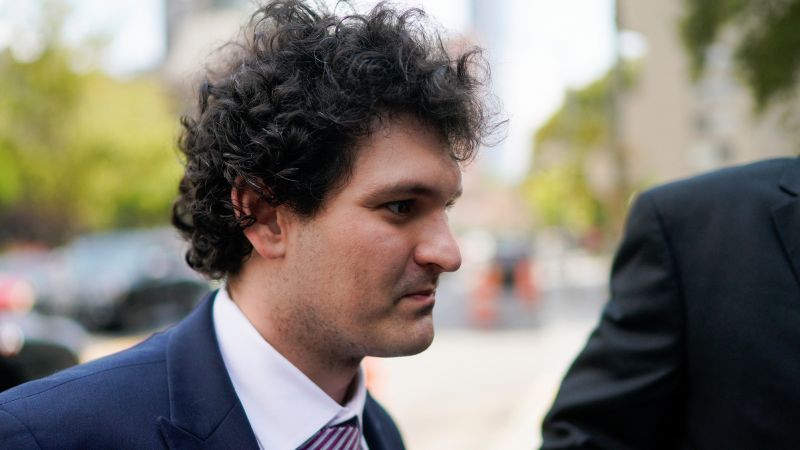Lawyers for Sam Bankman-Fried filed a memo in Manhattan federal court Tuesday arguing that their client doesn’t deserve to spend the rest of his life in prison, calling a recommended 100-year sentence “barbaric” and “grotesque.”
Bankman-Fried, who is 31, was convicted in November on seven counts of fraud and conspiracy for his role in the collapse of FTX, the bankrupt cryptocurrency exchange he co-founded. Under federal sentencing guidelines, he could face a maximum of 110 years.
In the memo, Bankman-Fried’s lawyer, Marc Mukasey, asks the judge overseeing the case to reject the pre-sentencing report prepared by the Probation Department, which recommends a 100-year sentence.
“That recommendation is grotesque,” he says, noting that Bankman-Fried is a nonviolent offender who was abetted by “at least four other culpable individuals.” Mukasey also notes victims — roughly one million whose funds have been frozen while FTX goes through bankruptcy court — are expected to be made whole.
Considering Bankman-Fried’s “charitable works and demonstrated commitment to others” Mukasey recommends a prison sentence between five and six-and-a-half years.
His sentencing is scheduled for March 28. Bankman-Fried remains in a Brooklyn jail, where he has resided since his bail was revoked in August.
Until the fall of 2022, Bankman-Fried had been riding high as the billionaire prodigy behind FTX, the startup that boasted A-list celebrity backers and a sleek interface that attracted millions of people to try their hand at crypto trading. But in the year-plus since FTX folded, Bankman-Fried has been held up by some as a symbol of a largely unregulated industry built on the shaky foundation of highly speculative assets.
The memo is a standard filing ahead of sentencing. The judge overseeing the case, Lewis Kaplan of the Southern District of New York, will weigh several factors in deciding Bankman-Fried’s sentence, including arguments from prosecutors, defense counsel and the recommendations from the Probation Department.
One area in dispute is the calculation of losses incurred by victims. Typically, in white-collar crimes, the bigger the financial loss, the longer the sentence. It’s common for defendants to dispute the government’s calculations of such losses.
Mukasey writes in the memo that the pre-sentencing report is flawed and “adopts the government’s narrative wholesale.”
Lawyers for FTX’s estate told a bankruptcy court earlier this month that customers and creditors were likely, though not guaranteed, to recover most of the money that was lost in the exchange’s collapse.
“I think it’s something that will be contested,” said Jordan Estes, a former federal prosecutor with the US Attorney’s Office who is now a partner at Kramer Levin. “The government may say that doesn’t matter — that what matters is the intended loss, or what the loss was at the time.”
Ultimately, the decision comes down to Kaplan’s discretion.
“It’s common in white-collar cases in the Southern District for defendants to be sentenced to below guidelines, and certainly not 110 years,” said Estes. “But this is a little bit of an unusual crime. So it’s hard to tell what will happen.”
Read the full article here




